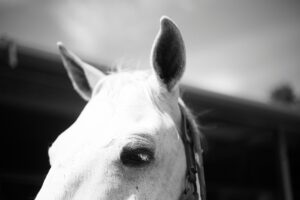 On a July day before my fifth grade school year began, Mom and Dad circled my three brothers, my sister and me. They told us we were moving to Indiantown, a one-stoplight village in rural South Florida. We’d be moving in a week to my grandfather’s cattle ranch, which was acres of palmetto scrub. We’d live in a doublewide trailer encircled by some scraggly pine trees in the agricultural flatlands that are the interior of southern Florida.
On a July day before my fifth grade school year began, Mom and Dad circled my three brothers, my sister and me. They told us we were moving to Indiantown, a one-stoplight village in rural South Florida. We’d be moving in a week to my grandfather’s cattle ranch, which was acres of palmetto scrub. We’d live in a doublewide trailer encircled by some scraggly pine trees in the agricultural flatlands that are the interior of southern Florida.
Indiantown is a former Seminole Indian trading post, a midway point between the Atlantic Ocean and Lake Okeechobee, known to locals as The Big O. Indiantown was a 90-minute drive due west of the coastal town I had always called home. I was 10 then and had never redefined home. I can’t imagine that I had ever defined it, either, in any conscious way. I was a child in the last lengths of her childhood, intuiting safety and boundaries, identification with land and place, closeness and the wider world.
Until we moved to Indiantown, my life has been a sketchbook of recurring vignettes: attending Catholic School, having Sunday lunch at my grandparents’ house on the edge of a golf course, roaming the neighborhood to build forts and play dodge ball with a band of kids, and swimming behind the sea grape thickets at the edge of the Atlantic Ocean two blocks away.
When the seven of us motored westward a week later with a U-Haul trailer toddling behind us, strip centers, surf shops and coconut palms gave way to fields crisscrossed with barbed-wire fences and spiked with palmetto bushes. The further west we drove, the more the land was ceded to vegetables, cattle and sugar cane. The air smelled like cow poop. Crickets thrummed through the heat. A faded billboard announced groves selling REAL FLORIDA ORANGE JUICE.
At the edge of Indiantown, pop. 631, Dad slowed as we drove past the Seminole Inn, Waters Feed Shop, the Circle-T Rodeo grandstands, Warfield Elementary School and the defunct Seaboard Coast Line train station, cloaked in kudzu. I was in another country with senses heightened and eyes wide open.
Four miles down unpaved Fox Brown Road my brother Andy unlatched a metal gate. Just behind the gate, nine horses grazed in a pasture the size of two football fields. Behind that, our trailer sat surrounded by a half dozen pine trees. A wire fence demarcated our small yard. From Fox Brown Road, our trailer looked like a big, scruffy tennis shoe.
What comprises the unknowable matrix of what is remembered and what recedes into forgottenness as our lives unspool and curl into the future? During that year in Indiantown I can still recall a list of firsts on the flow chart of my life: first stirrings for a boy, first rodeo, first bra (even though I had nothing to fill it). On the larger map that charts passage from childhood to the territories that follow, I know that year now to be one in which I began unfastening from my family, individuating from the cluster of Kellys I had been born into. Of all those tender firsts, the one that stirs most deeply inside me is a night with my father and the horses. It was the first time I had the ability to see him as a person, as someone who was separate from being my dad, as a man who was in the world in ways I could not yet understand.
Of the nine horses that grazed in the front pasture, Stormy was the wildest and most clever. Stormy knew how to nudge open the gate on the fence around the trailer, which he only did at night when we were asleep. Into our yard the horses streamed on those nights, beelining toward the trailer corners to scratch their backs on the angular metal. They rubbed with such force, we were jostled from our beds.
After we tumbled to the floor, my dad ran outside in his baggy, nylon briefs, his arms waving above his head like a madman, his voice in a pitch as he cursed. The horses responded by running frenzied circles around the trailer, kicking up dust, whinnying with confusion. Dad ran and screamed until the horses veered toward the gate and galloped back into the front pasture. We kids crouched inside the trailer, our noses pressed against the screen door. I was thrilled by the spectacle. Eventually Mom scooted everyone back to bed. One night I snuck back to watch my father. I don’t know what I was looking for; the drama had ended. But I stayed there on my knees.
It is quiet. My father is still in the yard. The horses have trotted away to the far side of the front pasture. Dad locks the gate. In the moonlight his underpants glow in the dark. He leans against the fence, his chest rising and falling, satisfied I suppose, victorious, powerful. He draws deeply on one of his Salems, the tip like a laser beam cutting through the gauzy night air. He doesn’t see me watching. And I can’t seem to look away.

